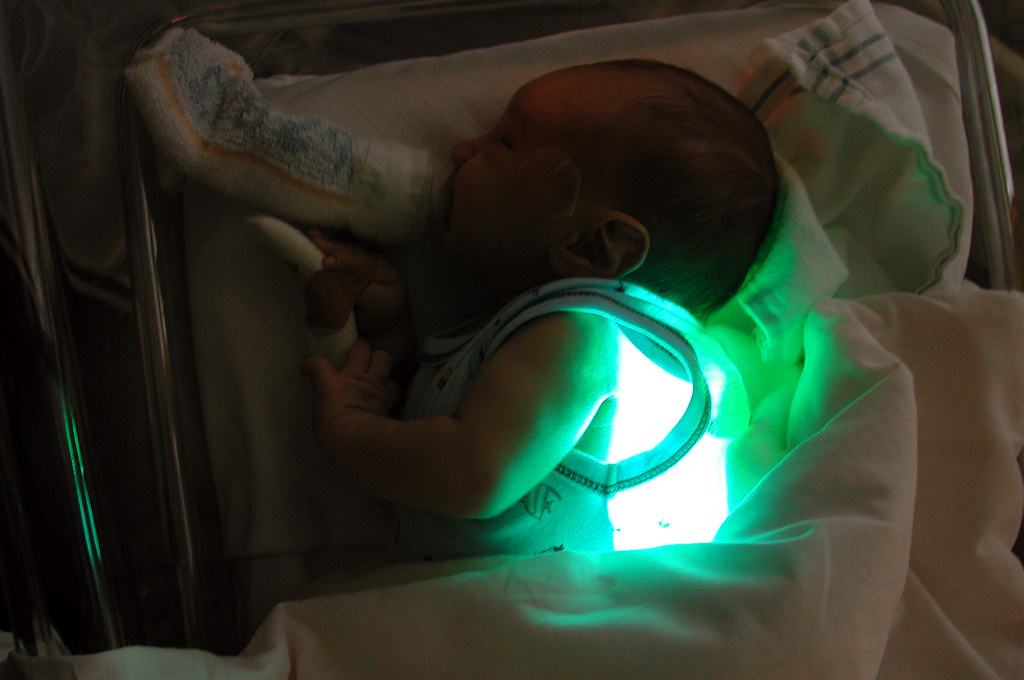Light for Jaundice at Home: Treating jaundice in newborns is now more accessible with light for jaundice at home. This home-based phototherapy option allows parents to administer the necessary light treatment in a comfortable environment. Special light-emitting blankets or devices are used to expose the baby’s skin to therapeutic light, helping to break down excess bilirubin. This convenient and effective approach ensures that mild to moderate jaundice can be managed without hospitalization. By using light for jaundice at home, families can provide essential care while keeping their newborns close and comfortable during treatment.
Bili Light Therapy at Home: A Guide for Parents in Hyderabad
Bili light therapy, also known as phototherapy, is a common treatment for newborns with jaundice. This condition occurs when a baby’s liver is not yet able to effectively break down bilirubin, a substance produced during the normal breakdown of red blood cells. Bili light therapy involves exposing the baby’s skin to special blue spectrum lights, which help break down the excess bilirubin and allow the body to eliminate it more effectively.
For parents in Hyderabad, having access to bili light therapy at home can bring peace of mind and convenience. With the right equipment and guidance from a healthcare professional, parents can administer this treatment in the comfort of their own home, saving them the hassle of repeated visits to the hospital.
If your newborn is prescribed bili light therapy, consult with your healthcare provider to see if home treatment is an option for you. They can provide you with the necessary equipment and guidance to set up a safe and effective treatment space at home. Remember to monitor your baby’s progress closely and contact your healthcare provider if you have any concerns or questions.
Understanding NICU Light Therapy for Newborns in Jaipur
NICU light therapy, also known as phototherapy, is a commonly used treatment for newborns with jaundice in Jaipur. Jaundice occurs when bilirubin builds up in the baby’s blood, causing yellow skin and eyes. This common newborn condition is usually harmless but can cause complications if untreated.
NICU light therapy exposes the baby to light, breaking down excess bilirubin for excretion.
The baby is placed under blue or white light with eye protection.
Treatment duration varies based on jaundice severity, ranging from hours to several days.
NICU light therapy is a safe, effective treatment for newborn jaundice, reducing bilirubin levels.
Regular monitoring of bilirubin levels is crucial during and after therapy.
How to Use Bili Lights for Newborn Babies in Mumbai
Bili lights, also known as phototherapy lights, are commonly used to treat newborn babies with jaundice in Mumbai. Jaundice is a condition that causes a yellowing of the skin and eyes in newborns due to elevated levels of bilirubin in their blood.
When using bili lights for newborn babies in Mumbai, it is important to follow the guidelines provided by healthcare professionals.
- Feed the baby regularly during phototherapy to help clear bilirubin faster.
- Schedule regular pediatrician check-ups to monitor progress and adjust the treatment plan.
By following these steps, newborn babies in Mumbai can safely and effectively receive bili light therapy for jaundice.
Post-Phototherapy Jaundice Care for Infants in Bangalore
After undergoing phototherapy for jaundice, infants need to receive proper care to ensure their recovery is smooth and effective. In Bangalore, healthcare providers recommend that parents keep their babies well-hydrated by feeding them frequently. This helps to flush out the excess bilirubin from their system and speeds up the recovery process. It is also advisable to monitor the baby’s bowel movements and urine output to ensure proper elimination of bilirubin.
Parents should also pay attention to their infant’s skin condition post-phototherapy. It is common for babies to experience skin dryness and irritation after treatment. Applying moisturizing creams or lotions can help soothe the skin and prevent any discomfort.
- Keep the baby in shaded areas or use protective clothing outdoors.
- Regular follow-ups with the healthcare provider are crucial to monitor progress.
- Watch for worsening jaundice signs like yellowing eyes or skin.
- Seek medical attention if jaundice worsens.
By following these post-phototherapy care guidelines, parents can help their infants recover fully and enjoy good health.
Monitoring Bilirubin Levels in Newborns: Tips for Parents in Delhi
Monitoring bilirubin levels in newborns is crucial to ensuring their overall health and well-being. In Delhi, where the prevalence of jaundice in newborns is relatively higher, parents need to be aware of the signs and symptoms of elevated bilirubin levels. Some common indicators include yellowing of the skin and eyes, excessive sleepiness, poor feeding, and dark urine.
Parents in Delhi should work closely with their pediatrician to monitor their newborn’s bilirubin levels regularly, especially in the first few days after birth. Parents need to follow the doctor’s recommendations for treatment, which may include phototherapy or in severe cases, blood transfusions. By staying vigilant and proactive, parents can help ensure that their newborn receives timely and appropriate care for jaundice.
In addition to monitoring bilirubin levels, parents should also promote a healthy lifestyle for their newborn to prevent complications.
- Hydration, nutrition, and sunlight support the baby’s liver function and bilirubin elimination.
- Informed, proactive parents in Delhi protect their newborn’s health and well-being.
Phototherapy is a common treatment for jaundice in newborns, effectively lowering bilirubin levels. The duration of phototherapy in newborns typically ranges from 24 to 72 hours, depending on the severity of the jaundice and the infant’s response to treatment. Medical professionals continuously monitor bilirubin levels to determine the appropriate duration. In some cases, treatment may need to be extended if bilirubin levels remain high. Early detection and intervention are crucial, as prolonged jaundice can lead to complications. Ultimately, the goal is to safely reduce bilirubin levels while ensuring the baby’s comfort and well-being throughout phototherapy in newborns.

